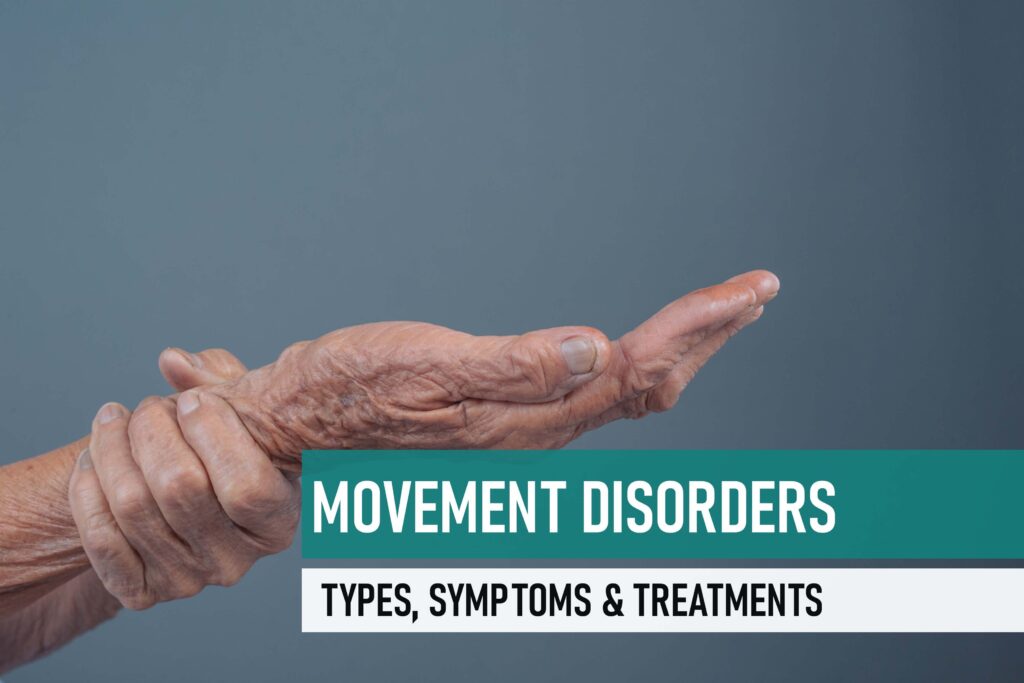Overview
Movement disorders are a group of neurological conditions that cause abnormal or involuntary movements or reduce voluntary movements. These disorders can significantly impact an individual’s quality of life, making it essential to seek timely diagnosis and treatment. For patients experiencing these symptoms, consulting a trusted neurologist in Ahmedabad is the first step toward effective management and relief.
What are movement disorders?
Movement disorders refer to a spectrum of neurological conditions that affect the way the body moves. These can manifest as excessive, involuntary movements or a lack of movement altogether. Common examples include Parkinson’s disease, dystonia, essential tremor, Huntington’s disease, and ataxia.
A movement disorder specialist is a neurologist with additional expertise in diagnosing and treating these complex conditions. These specialists use advanced diagnostic tools and treatments to improve patients’ lives.
Types of movement disorders
- Parkinson’s Disease:
Parkinson’s is one of the most recognized movement disorders. It is characterized by tremors, stiffness, slowness of movement, and balance issues. Early intervention by a movement disorder specialist in Ahmedabad can help manage the symptoms and improve mobility. - Dystonia:
This condition causes involuntary muscle contractions, leading to twisting or abnormal postures. Treatment often involves medication, botulinum toxin injections, or physical therapy. - Essential Tremor:
This neurological condition primarily causes rhythmic shaking, most commonly in the hands. It differs from Parkinson’s tremors and requires evaluation by a movement disorder specialist for appropriate management. - Ataxia:
Ataxia affects coordination and balance, often making simple tasks challenging. A thorough evaluation by a neurologist can identify its underlying cause. - Huntington’s Disease:
A genetic disorder that leads to involuntary movements, cognitive decline, and emotional disturbances. Early diagnosis is key to managing its progression.
Symptoms to watch for
Movement disorders can present with a variety of symptoms, such as:
- Involuntary shaking or tremors
- Muscle stiffness or rigidity
- Difficulty in initiating movements
- Abnormal gait or posture
- Jerky, uncontrollable movements
If you or a loved one experience any of these symptoms, consulting a movement disorder specialist is highly recommended.
Diagnosis & treatment of movement disorders
Accurate diagnosis is crucial for effective treatment. A neurologist will typically perform a detailed clinical evaluation, which may include:
- Neurological exams to assess reflexes, coordination, and muscle tone
- Imaging studies like MRI or CT scans
- Blood tests or genetic testing for hereditary disorders
Treatment depends on the specific type of movement disorder and its severity. Options include:
- Medications: To manage symptoms like tremors, stiffness, or involuntary movements.
- Physical Therapy: To improve strength, coordination, and flexibility.
- Botulinum Toxin Injections: Effective for conditions like dystonia or spasticity.
- Deep Brain Stimulation (DBS): An advanced surgical treatment for Parkinson’s disease and essential tremor.
Wrapping up…
Movement disorders can be life-altering, but with the right diagnosis and treatment, patients can lead fulfilling lives. If you or someone you know is experiencing symptoms of a movement disorder, consulting an expert at the earliest is highly recommended.
Early intervention can make all the difference in managing these conditions effectively. For more information or to schedule a consultation at Setu Neurology Clinic.
Source/s: Banner image by freepik.com

